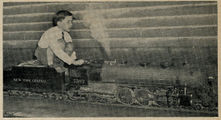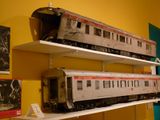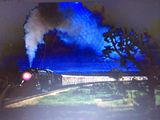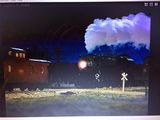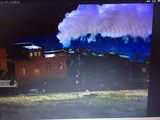One Inch Steam Locomotive Goes Hollywood: Difference between revisions
No edit summary |
No edit summary |
||
| Line 43: | Line 43: | ||
File:LESmith OneInchHudson 1940.jpg|One inch scale Hudson built by L.E. Smith, shown here with his son Robert, 1940. | File:LESmith OneInchHudson 1940.jpg|One inch scale Hudson built by L.E. Smith, shown here with his son Robert, 1940. | ||
File:20101214propsfromthegreatestshowonearthmoviesarasotaFL.JPG|One inch scale passenger car props used in "The Greatest Show on Earth", shown here at the Ringling Circus Museum, Sarasota, FL. Photo by Linda Braun. | File:20101214propsfromthegreatestshowonearthmoviesarasotaFL.JPG|One inch scale passenger car props used in "The Greatest Show on Earth", shown here at the Ringling Circus Museum, Sarasota, FL. Photo by Linda Braun. | ||
File:2014-06-22 23.03.04.jpg|L.E. Smith's 1 inch scale Hudson as it appeared in the movie "The Greatest Show on Earth", Copyright 1952 Paramount Pictures. | |||
File:2014-06-22 23.08.04.jpg|The Smith Hudson, pulling the second section passenger train, collides with the caboose of the first section freight train. | |||
File:2014-06-22 23.10.57.jpg | |||
</gallery> | </gallery> | ||
Revision as of 20:42, 23 June 2014
1 inch Scale Locomotive "Goes Hollywood"
by L. E. Smith
2552 Merced Avenue
El Monte, California
The Miniature Locomotive, November-December 1954
Here is a little story about a 1 inch scale Hudson that made the movies at the age of 13 years in "The Greatest Show on Earth" (1952).
Perhaps our readers who saw this movie will remember the locomotive that crashed the rear of the stalled show train with sufficient power to thoroughly wreck about ten cars before turning over on its side. This engine was my creation, being build from the tracks up, through the paper work of the design through my own patterns and castings poured from metal metled in a furnace made from an old hot water tank lined with fire brick and using an old vacuum cleaner for the air blast. Kerosene was used for fuel.
With the help of a few generous friends I was able to complete this engine in 14 months with a total expenditure of $75.00. Of course this was way back in the year 1937.
Engine No. 5302 saw quite a bit of service until 1940 when it went into storage while I explored the work possibilities of Chicago for two years and then off to California. Finally in November, 1942 I had all 450 pounds of it shipped to my home, now in sunny California, where it was swet up in El Monte. It again gave a good account of itself until 1948 when it was removed from active service. It was later sold to Paramount Pictures, Inc in 1950.
The specifications of this wonderful little locomotive are:
- Bore, 1-7/8 inch
- Stroke, 2-1/4 inch
- Drivers, 7 inch
- Baker valve gear
- Boiler, steel 8 inch diameter
- Fire box, 10 inch by 14 inch
- Height of engine, 16 inch
- Width, 11 inches
- Length, 52 inches
- Weight, 150 pounds
- Working pressure, 100 psi
- Two injectors
- Two safety valves
- Draw bar pull, 85 pounds
My son Robert is seen at the controls of the engine when he was 7 years old. Now he is 23 and a graduate student at Stanford University.
I have three other locomotives to my credit, a 3/4 inch scale Hudson No. 5301, a 1 inch scale Northern No. 4203 and a 1 inch scaqle Atlantic No. 3004.
